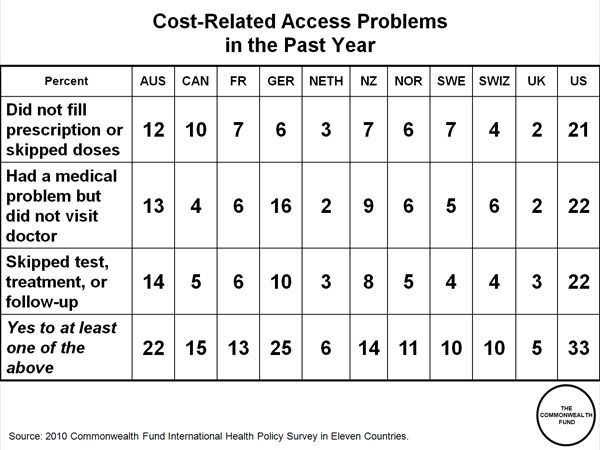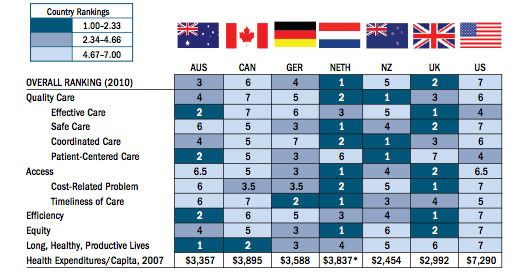If we had a functioning healthcare system, sick people would be able to access care and healthy people would not fear the financial consequences of illness.
We're told by politicians from both political parties that we Americans need to take personal responsibility and buy private, for-profit health insurance. We need to buy this junk insurance when we're healthy and pray we never need to use it.
Pray indeed.A cancer diagnosis even for someone with insurance, is a battle for your life, and a battle to avoid bankruptcy. Because skyrocketing copays and deductibles put so much of the financial burden on the shoulders of patients, sick people are having to decide treatment plans based on cost, not what may be most medically efficacious.
We live in a country where healthcare is a privilege of the affluent, and for those who still have employer provided coverage. But employer coverage, long the backbone of the U.S. healthcare system, is unraveling at a frightening pace.
Paul Krugman has a link this morning to an explosive report on the declining number of Americans with employer health coverage.
The report has some very bleak information.
Between 2007 and 2010, the share of children and working-age adults in the United States with employer-sponsored health insurance dropped 10 percentage points from 63.6 percent to 53.5 percent, according to a new national study by the Center for Studying Health System Change (HSC). The key factor driving the sharp decline was the enormous loss of employment during the Great Recession, which officially started in December 2007 and ended inThere is an equally insidious reason why the United States always ranks last of the industrialized nations in healthcare outcomes. It's the huge costs-- the co-pays and deductibles we Americans are required to pay, which make a trip to the doctor a luxury few, even insured Americans can afford.
June 2009.
Deductibles and copays have only one purpose--to place a financial disincentive in front of you before accessing healthcare. If you're required to go out-of-pocket and spend a large amount of money on healthcare, so the theory goes, you'll get good and sick, you'll think long and hard before going to a doctor. Score one for the insurance industry. This is exactly the behavior they're counting on, when they sell you a product that assigns large first dollar costs to you.
I've been asked why I refer to private health insurance as junk insurance. Here's why. If you are healthy and rarely seek medical care, private insurance is fine if you can afford the huge monthly premium. It's not fine, if you find yourself in a medical pickle and need more comprehensive care. That's when you discover all the costs you will be saddled with.
I haven't been writing much lately because I've been dealing with my own quite aggravating health problems. I am seeing first hand, the huge toll co-pays and deductibles inflict on all of us. If you're healthy and go to the doctor once or twice a year, a $50.00 co-pay may not seem like such a financial burden. But what happens when you're not going to the doctor twice a year, you're going to multiple doctors three, four or five times a month. Then the $50.00 co-pay becomes a real obstacle between you and the healthcare you require.
The same is true with the fee most insurers now impose for any surgical procedure. In my case the fee for any surgery is $300.00. When you buy insurance you evaluate the supposed 'benefits' you are paying for, and you get the insurance you can afford, not necessarily the insurance you might need. If you've been relatively healthy, the concept of the fees you will be paying if God forbid you actually need to use the crap insurance is a theoretical exercise in denying that any illness could ever strike you. But then something unexpected happens and the theory flies out the window. All you think about is the cost of every doctor visit, and will the doctor visit result in tests, hospitalizations, surgery, the list is endless of what the insurer may or may not pay.
This chart explains the problem of cost related access.
Those of us studying the Affordable Care Act are deeply worried that if the law is fully implemented, the cost of insurance on the newly created exchanges will be prohibitive, and most people will be relegated simply by financial necessity to buy the cheapest product with the least generous benefits.
Why does the United States consistently rank last in outcomes? It's because healthcare is rationed based on your ability to pay.

